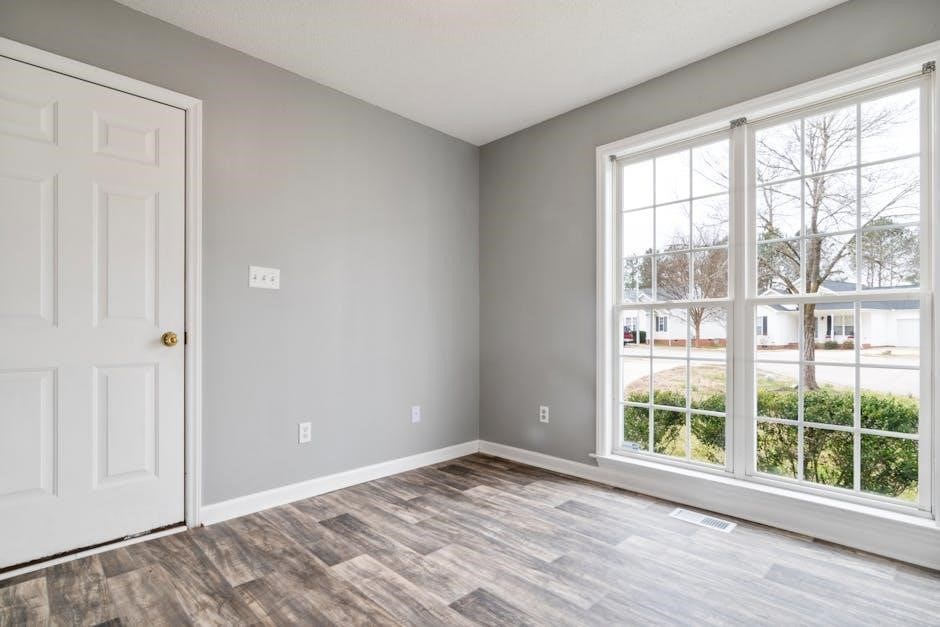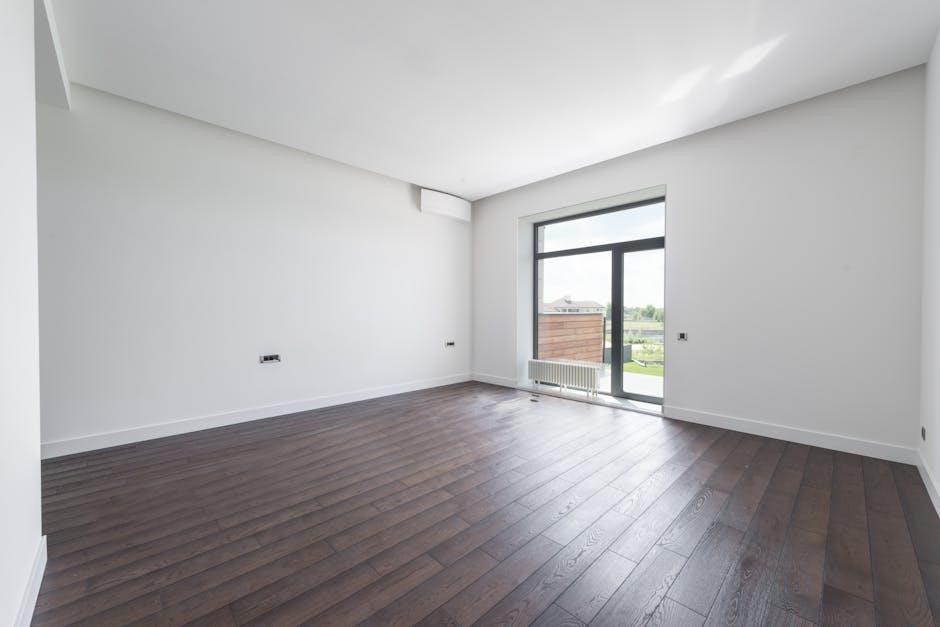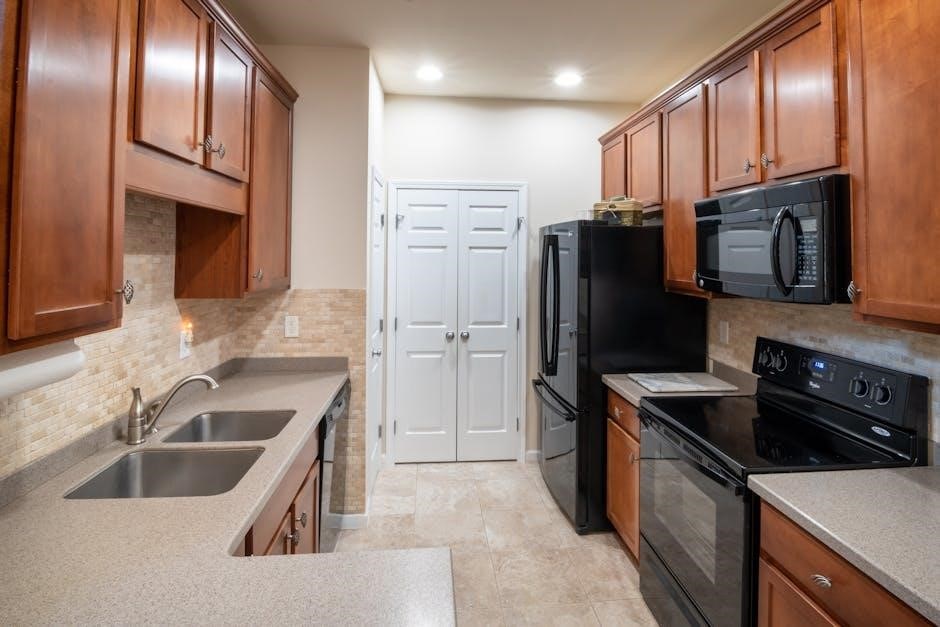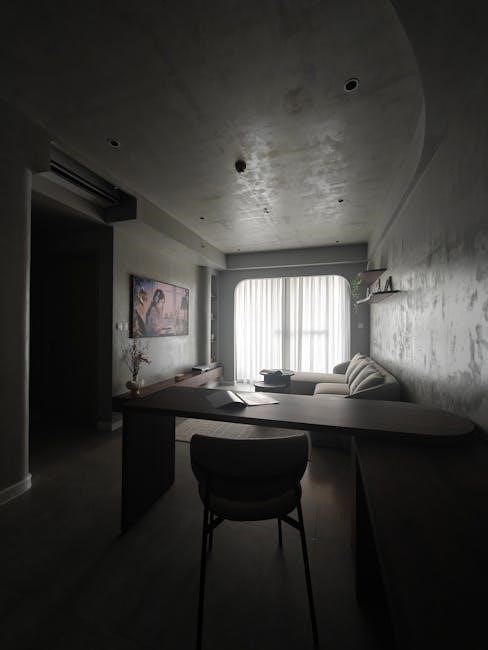house rules for tenants renting a room pdf
House rules are essential for tenants renting a room, outlining responsibilities and expectations to maintain order and respect for shared spaces, ensuring a harmonious living environment.
1.1 Importance of Establishing Clear House Rules
Clear house rules are vital for maintaining order, respect, and harmony among tenants and landlords. They outline expectations for behavior, responsibilities, and shared spaces, preventing misunderstandings and potential conflicts. By defining boundaries and consequences, house rules ensure a peaceful living environment, protect property, and foster mutual respect. They also provide a legal framework, safeguarding both tenant and landlord rights, and promoting a positive, disciplined community within the rental property.
1.2 Purpose of a House Rules Document
A house rules document serves as a formal guide outlining expectations for tenant behavior, responsibilities, and shared space usage. It ensures clarity, prevents conflicts, and provides a legal reference for addressing violations. By detailing policies on cleanliness, noise, guests, and payments, the document fosters respect and accountability among tenants and landlords, creating a structured and harmonious living environment while protecting both parties’ interests effectively.

General Tenant Responsibilities
Tenants are responsible for maintaining cleanliness, respecting shared spaces, adhering to noise levels, and reporting damages promptly to ensure a harmonious and well-maintained living environment for all occupants.
2.1 Cleanliness and Maintenance of the Room
Tenants must maintain their room in a clean and tidy condition, including personal belongings. Shared spaces should be left clean after use. Proper waste disposal is mandatory. Tenants are responsible for reporting any damages or needed repairs promptly. Furniture and appliances provided must be used responsibly and kept in good condition. Regular cleaning schedules should be followed to ensure a pleasant living environment for all occupants.
- Keep the room organized and free from clutter;
- Dispose of trash regularly and recycle when possible.
- Notify the landlord of any maintenance issues immediately.
- Avoid moving furniture without prior permission.
2.2 Shared Spaces and Common Areas
Tenants are responsible for maintaining cleanliness and order in shared spaces like kitchens, bathrooms, and living areas. After use, clean up immediately and dispose of waste properly. Noise levels should be kept reasonable to respect others. Personal belongings should not be left in common areas. Tenants must adhere to any posted rules for shared spaces to ensure a comfortable environment for all residents.
- Clean up after using shared facilities.
- Respect quiet hours in common areas.
- Label and date personal items in shared spaces.
- Report any damage or issues promptly.
2.3 Noise Levels and Quiet Hours
Tenants must maintain reasonable noise levels, especially during designated quiet hours, typically evenings and late nights. Loud noises, music, or gatherings that disturb others are prohibited. Respect shared spaces by minimizing disruptions. Repeated violations of noise rules may result in penalties or further action to ensure a peaceful living environment for all residents.
Financial Obligations
Tenants must adhere to rent payment terms, deadlines, and late fee policies. Financial responsibilities include timely payments and understanding potential penalties for overdue amounts, as outlined in the lease agreement.
3.1 Rent Payment Terms and Deadlines
Clear rent payment terms and deadlines are crucial to ensure timely payments. Tenants must pay rent by the specified due date, and late payments may incur fees. The lease agreement should outline acceptable payment methods, due dates, and consequences for late payments, such as additional charges or potential eviction for repeated violations. Adhering to these terms is essential for maintaining a positive landlord-tenant relationship and avoiding financial penalties.
3.2 Late Payment Fees and Consequences
Late payment fees are applied if rent is not received by the specified deadline. These fees, outlined in the lease agreement, aim to incentivize timely payments. Repeated late payments may lead to additional penalties, such as increased rent or legal action. Severe or habitual late payments can result in eviction, emphasizing the importance of adhering to payment terms to avoid financial and legal consequences.

Guest Policy
The guest policy sets limits on the number of visitors and their stay duration to prevent overcrowding and ensure other tenants’ peace is fully respected.
4.1 Maximum Number of Guests Allowed
The house rules specify the maximum number of guests permitted in the rental room at any given time. This restriction helps prevent overcrowding and ensures respect for other tenants. Typically, landlords set a limit of 1-2 guests, depending on the room size and shared spaces. Tenants are usually required to notify the landlord or house manager before inviting visitors. Large gatherings or parties may need prior approval to maintain order and safety.
4.2 Overnight Stay Restrictions
House rules often include restrictions on overnight stays to ensure a balanced living environment. Tenants may need prior approval for guests staying overnight, with limits on frequency and duration. This prevents unauthorized subletting and maintains harmony among tenants. Landlords may specify maximum allowed overnight stays per month and require guest registration for safety and security purposes. Violations can lead to penalties or termination of the tenancy agreement.

Lease Agreement and House Rules
A lease agreement integrates house rules, ensuring both tenants and landlords understand their obligations. It legally binds all parties, fostering mutual respect and adherence to shared expectations.
5.1 Incorporating House Rules into the Lease
Incorporating house rules into the lease ensures clarity and legal enforceability. It outlines tenant responsibilities, shared space usage, and conduct expectations, creating a binding agreement that protects both parties. This integration helps prevent disputes by providing clear guidelines, ensuring all tenants understand their obligations from the outset. Proper documentation is key to maintaining a harmonious and respectful living environment.
5.2 Flexibility in Rule Enforcement
Flexibility in enforcing house rules allows landlords to adapt to unique situations while maintaining order. Rules can be adjusted based on tenant needs or property-specific circumstances, ensuring fairness. Landlords must balance strict enforcement with understanding, fostering a positive tenant-landlord relationship. Clear communication and mutual respect are key to handling rule enforcement with flexibility, addressing individual cases without compromising the overall lease agreement or house rules.

Penalties for Violating House Rules
Violating house rules may result in late fees, lease termination, or eviction. Repeated offenses can lead to legal action, ensuring accountability and maintaining order in the property.
6.1 Consequences of Non-Compliance
Failure to adhere to house rules can lead to penalties, including late fees, warnings, or lease termination. Repeated violations may result in eviction or legal action, ensuring accountability and upholding the property’s order. Tenants are expected to address issues promptly to avoid escalating consequences, maintaining a respectful and orderly living environment for all occupants.
6.2 Termination of Tenancy for Repeated Offenses
Repeated violations of house rules may result in termination of the tenancy agreement. Landlords can issue formal notices, and if non-compliance persists, they may pursue legal eviction. Tenants are typically given warnings and opportunities to correct behavior before termination. This ensures fairness and adherence to legal procedures, protecting both parties’ rights while maintaining property standards and harmony among occupants.
Tenant Screening and Rule Awareness
Tenant screening ensures landlords select responsible tenants. Clear communication of house rules during lease signing and inspections guarantees awareness and agreement, preventing future disputes.
7.1 Ensuring Tenants Understand the Rules
Ensuring tenants understand house rules is crucial for maintaining a harmonious living environment. Provide a clear, written document outlining all rules and expectations. Discuss key points verbally to address any questions or concerns. Require tenants to sign an acknowledgment form, confirming they have read and understood the rules. This step ensures compliance and minimizes potential disputes. Including this process in the lease agreement reinforces its importance.
7.2 Sign-Off Process for House Rules
A formal sign-off process ensures tenants acknowledge and agree to house rules. Provide a written document outlining all rules and require tenants to sign and date it. This document should be included in the lease agreement for legal protection. The sign-off process confirms tenants have read, understood, and agreed to comply with the rules, minimizing potential disputes and ensuring mutual accountability.

Templates for House Rules Documents
House rules templates provide a structured format for creating clear guidelines. Downloadable PDF templates are customizable to suit specific properties, ensuring compliance with local laws and regulations.
8.1 Downloadable PDF Templates
Downloadable PDF templates simplify creating house rules documents. These templates are customizable to fit specific properties. They include sections for general rules, noise policies, and cleanliness standards, ensuring compliance. Many templates are free and can be easily edited. They provide a professional format for landlords to outline expectations clearly. Using templates saves time and ensures all essential aspects are covered. They are legally compliant and adaptable to different rental situations. Landlords can download and print them, making enforcement straightforward.
8.2 Customizing Rules for Specific Properties
Customizing house rules ensures they align with the unique needs of each property. Landlords can tailor rules based on property size, location, and tenant demographics. For example, pet policies or parking restrictions may vary. Common areas, noise levels, and guest policies can also be adapted. Templates provide flexibility, allowing landlords to modify rules to suit their property’s specific requirements. This ensures clarity and fairness for all tenants while addressing individual property needs effectively.

Enforcing House Rules Fairly
Enforcing house rules fairly involves consistent monitoring, clear communication, and documenting violations. Landlords must ensure all tenants are held to the same standards without bias or favoritism.
9.1 Landlord’s Role in Monitoring Compliance
The landlord plays a crucial role in ensuring tenants adhere to house rules by conducting regular inspections, addressing violations promptly, and maintaining open communication. They must review tenant behavior, document any breaches, and enforce consequences fairly. Landlords should also provide clear guidance on rule expectations and be approachable for questions or concerns, fostering a cooperative living environment while upholding the agreed-upon standards.
9.2 Documenting Rule Violations
Landlords should maintain detailed records of any rule violations, including dates, descriptions, and actions taken. This documentation ensures accountability and provides evidence in case of disputes or legal proceedings. Tenants should be notified in writing of any violations, outlining the specific rule breached and the required corrective action. Consistent and fair documentation helps uphold the house rules and maintains a structured approach to addressing non-compliance effectively.
House rules ensure safety, order, and legal compliance, fostering positive tenant-landlord relationships. Clear guidelines promote harmony and respect, benefiting everyone involved in the rental experience.
10.1 Benefits of Well-Defined House Rules
Well-defined house rules ensure safety, legal compliance, and harmonious living. They prevent misunderstandings, reduce potential disputes, and foster mutual respect. Clear guidelines promote accountability, maintain property condition, and protect tenant rights, ensuring a positive rental experience for all parties involved.
10.2 Final Thoughts on Tenant-Landlord Relationships
A positive tenant-landlord relationship is built on mutual respect, clear communication, and adherence to house rules. A well-structured lease agreement ensures both parties understand their responsibilities, fostering trust and cooperation. Flexibility and fairness in enforcing rules help address conflicts amicably, while legal compliance protects everyone’s rights. Ultimately, a harmonious relationship benefits both tenants and landlords, creating a respectful and peaceful living environment for all.

